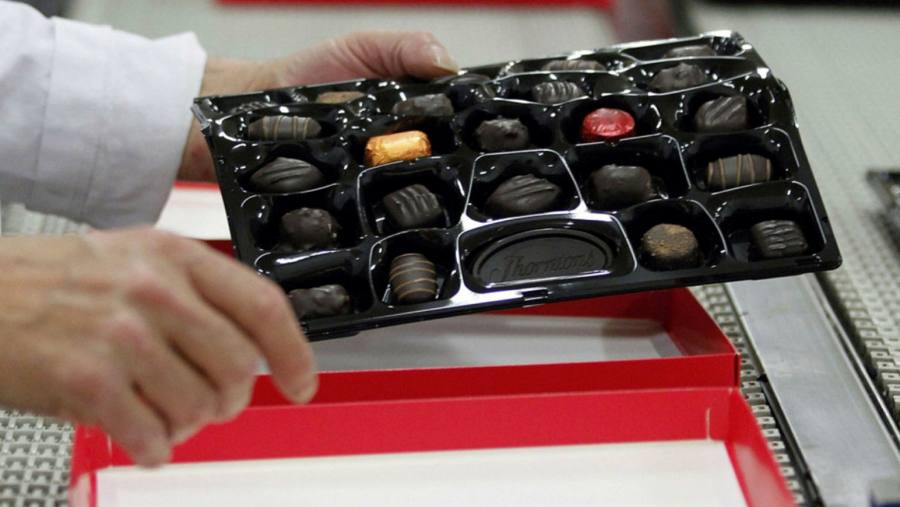[ad_1]
UK food manufacturers are facing millions of pounds in extra costs due to Brexit red tape from next month when the European Commission introduces new layers of bureaucracy on food imports, the industry has warned.
The new EU legislation covering multi-ingredient products, ranging from chocolate bars to curry sauces, is expected to increase the volume of UK export health certificates required to send food to the EU by up to one-third, industry associations warned.
The additional paperwork, which will be required from April 21, will also lead to more problems in operating the Northern Ireland Protocol as it will increase the levels of checks on food products moving from Great Britain across the Irish Sea, which under the terms of the Brexit divorce deal are required to comply with EU customs rules.
Ian Wright, chief executive of the Food and Drink Federation, which represents major food manufacturers, warned that the new bureaucracy would make it “unviable†for many of his members to continue shipping to Northern Ireland.
“The added bureaucracy will prove costly to businesses of all sizes . . . it is vital that any checks which are undertaken are done so in a proportionate manner,†he added.
The new EU rules, which will apply to all so-called “third countriesâ€, mean that “shelf-stable†products that contain meat and pasteurised milk and some egg products will require a vet-stamped export health certificate.Â
Other products, such as cheese and onion crisps, which contain cheese powder, will require pages of “attestation†documents from the shipper detailing the source of the cheese used to flavour the crisps, according to policy experts at the FDF.
Several UK food manufacturers, who asked not to be named, told the Financial Times the additional paperwork and cost from EHCs will make exports of composite products commercially non-viable.Â
The new rules will land particularly hard on smaller companies that do not have the benefits of economies of scale, and the trade in chilled products such as sandwiches and ready meals between the UK and the Republic of Ireland, according to Karin Goodburn of the Chilled Food Association.
The association has estimated that the new rules will require a 36 per cent increase in health certificates, most of which will fall on trade with Ireland worth about £1bn a year. The chilled food industry is worth an estimated £13.5bn a year and employs 80,000 people, with approximately 5,000 jobs reliant on trade with Ireland.
“The question is whether all this new administrative cost can be borne, given existing profit margins. Even the ‘attestations’ are not simple, they can go on for pages and pages for every component in every food,†Goodburn added.
The additional paperwork, much of which will need physical stamp from an authorised vet, will also put further pressure on the sector, the British Veterinary Association warned, as they will need to adjust to the new rules.
“We do have concerns. We know already that there are some pinch points as vets are being diverted towards export documentation. We do recognise that there is a capacity challenge and it’s yet to be filled,†said James Russell, the president of the BVA.
Businesses will also be forced to adapt, according to the FDF, which said that members were raising serious concerns about the coming changes, with one large snack maker warning costs could run into millions of pounds.
“We will need a vet on site for 10 hours per day, five days a week at a cost of £300,000 per annum. Multiply this across our sites where we export and we are looking at a potential cost running into the millions,†the snack company told the FDF.
The government did not immediately reply for a request for comment.
[ad_2]
Source link





